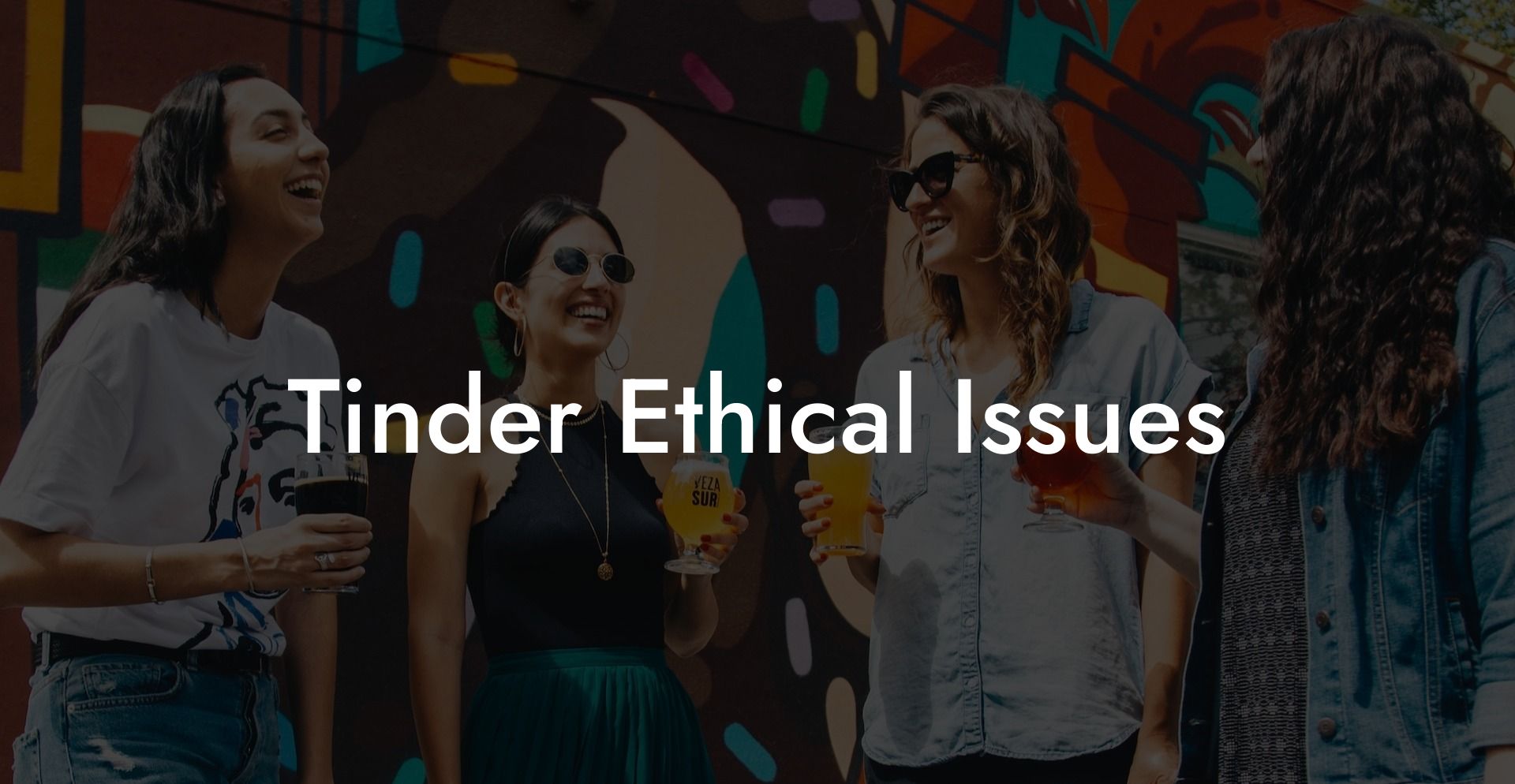Tinder, the popular dating app that boasts over 50 million users, has been under the spotlight in recent years due to various ethical issues. From privacy concerns to promoting superficial relationships, the ethical debate surrounding the use of Tinder has garnered significant attention. In this article, we'll delve into the ethical issues surrounding Tinder, offer insights into its impact on dating culture, and provide examples that illustrate the challenges faced by its users.
Tinder Ethical Issues Table of Contents
Privacy Concerns
A primary concern with Tinder and similar dating apps is the issue of privacy. Users are required to log in using their Facebook account and provide access to their photos, name, age, and location to create a profile. This information is then made accessible to other users.
Facebook Data Breaches
In 2018, following the Cambridge Analytica scandal, Tinder faced backlash for its reliance on Facebook for user logins. This event raised concerns over the security of user data stored and shared on Tinder. Some critics argue that Tinder's privacy policy is misleading, and users might be unaware of the extent to which their data is being used and shared.
GPS Tracking
With Tinder's location-based matching feature, privacy issues extend beyond data sharing. The app's GPS tracking has prompted concerns about potential stalking or unwanted encounters, as user locations can be approximated based on their proximity to other users.
User Privacy
The swiping mechanism inherent to Tinder is another topic of criticism. As users swipe left or right, they may inadvertently make judgments about individuals they have not met, potentially leading to objectification and dehumanization.
Superficial Relationships
Critics argue that Tinder encourages superficial and short-lived relationships, as the app is primarily driven by physical attraction. The focus on appearance has led some to question the app's impact on modern dating culture.
Rise of Hook-up Culture
There is an argument that Tinder has contributed to the rise of "hook-up culture," distancing individuals from meaningful connections and encouraging short-term, casual relationships. This perceived shift has been criticized for negatively impacting individuals' mental health and well-being.
Rejection and Self-esteem
The anonymity of Tinder can also contribute to a sense of constant rejection for users who do not receive matches. This experience can lead to feelings of low self-esteem and increased self-consciousness about appearance.
Unequal Power Dynamics and Discrimination
Tinder has also faced scrutiny for reinforcing unequal power dynamics and sustaining discriminatory behavior within its user base. The platform has been criticized for perpetuating male-dominated gender norms and enabling sexist behavior through its design and user interactions.
Unequal Expectations
Through the use of Tinder, women often face disproportionate expectations compared to men. Women are frequently expected to maintain conversations, entertain their matches, and face unsolicited comments or advances without recourse.
Discrimination and Bias
Tinder users often encounter discrimination based on race, body type, and other factors, as individuals make snap judgments based on limited information. This behavior perpetuates stereotypes and biases that harm marginalized communities.
Tinder Ethical Issues Example:
Jane has been using Tinder for a few months, hoping to find a meaningful connection. However, she's frequently faced derogatory comments on her appearance or ethnicity. While she has experienced some positive interactions, the prevalence of superficial connections and discriminatory behavior has left her feeling disheartened and frustrated.
As we have explored, the ethical issues surrounding Tinder are multifaceted and complex, touching on privacy concerns, superficial relationships, and unequal power dynamics. By raising awareness about these issues, users can make informed choices about their engagement with such platforms. We encourage you to share this article, further the conversation, and explore other guides on The Monogamy Experiment to deepen your understanding of modern dating culture.













